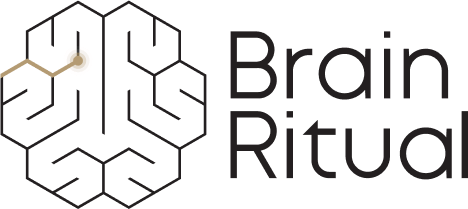Table of Contents
- At a Glance
- What Is a Refractory Migraine?
- How Is Refractory Different from Chronic Migraine?
- Why Some Migraines Become Refractory
- Living With Refractory Migraine
- Supportive Strategies Beyond Standard Treatment
- What Does the Research Say?
- Nutritional Support with Brain Ritual®
- Common Questions
- Final Thoughts
At a Glance
|
You may have heard the term refractory migraine being used to describe migraines that do not respond well to standard treatment approaches. Indeed, it is not viewed as a separate condition, but rather highlights cases where the usual options bring little relief. If you have experienced this, it can feel frustrating and exhausting, as though nothing you try seems to make a difference.
Here, we’ll explain what a refractory migraine is, how it differs from chronic migraine, and the factors that contribute to it. We’ll also look at practical ways to support yourself, including lifestyle routines, environmental adjustments, and nutritional strategies.
What Is a Refractory Migraine?
A refractory migraine is a migraine that continues despite trying multiple standard treatment approaches. Refractory is defined as being hard to manage or resistant to the usual options. While the symptoms are the same as those of migraine in general, what sets refractory migraine apart is the lack of response to acute or preventive options that usually bring some relief. Refractory migraine symptoms usually include headache pain, nausea, and sensitivity to light or sound, but with the added challenge that treatments bring little improvement.
Unlike chronic migraine, which is defined based on the number of headache days per month, refractory migraine is defined by how poorly attacks respond to treatment. The two can overlap, but they are not the same.
There is no single, universally accepted definition of refractory migraine, and expert groups outline the concept in different ways. What remains consistent across the literature is that it is considered a harder-to-manage form of migraine rather than a separate condition.

How Is Refractory Different from Chronic Migraine?
Though sometimes confused, chronic and refractory migraine are distinct aspects of the condition. Chronic migraine is defined based on frequency, referring to 15 or more headache days each month, of which at least eight have migraine features, recurring over a period of at least three months.
By contrast, refractory migraine is not about how often attacks occur, but how poorly they respond to standard acute or preventive treatments. A person may have chronic migraine without it being refractory, or refractory migraine without it being chronic. The two can also overlap, meaning someone may experience frequent attacks that are also resistant to treatment.
Key Differences Between Chronic and Refractory Migraine
Chronic Migraine | Refractory Migraine |
Defined by frequency: 15 or more headache days per month, with at least 8 showing migraine features. | Defined by resistance: migraine that does not respond well to standard acute or preventive treatments. |
Focuses on how often migraine occurs. | Focuses on how migraine responds to treatment attempts. |
A person may experience chronic migraine without it being refractory. | A person may experience refractory migraine without it being chronic. |
Commonly used in diagnosis and clinical research. | Recognized in medical literature, but exact criteria can vary between experts. |
Why Some Migraines Become Refractory
There is no single clearly defined cause of refractory migraine. Several factors often work together to make migraine harder to manage. These factors vary from person to person and are thought to contribute rather than directly cause migraine to become refractory.
Genetic Predisposition
Having a family history of migraine may increase the likelihood that attacks are more resistant to standard treatment options. If migraine runs in your family, it can sometimes be linked to inherited patterns of brain sensitivity, although not everyone with this background will experience more persistent or difficult-to-manage attacks.
Medication Overuse or Rebound Headache
Medication overuse headache, sometimes called rebound headache, can develop when acute treatments are used too frequently. This can reduce how well the treatments work and make migraine harder to manage.
High Baseline Attack Frequency
If you experience a high number of migraine days each month, attacks may be more resistant to treatment. Frequent episodes can also contribute to central sensitization, a process where the nervous system becomes more sensitive to pain signals over time. This heightened sensitivity can make migraine attacks feel stronger and harder to manage.
Co-Existing Conditions
Other health factors, such as sleep disturbances, anxiety, depression, or hormonal changes, can also make migraine more difficult to manage. These conditions may interact with migraine pathways by affecting hormone levels, sleep quality, or the balance of brain chemicals, making attacks harder to control.
Environmental and lifestyle factors
Environmental and lifestyle factors may play an important role in how refractory migraine develops and persists. Modern life exposes us to numerous metabolic stressors, including disrupted sleep, chronic psychological stress, irregular eating patterns, processed foods, pollutants, and artificial light, all of which can disturb the brain’s delicate energy balance. These environmental factors can increase oxidative stress and impair mitochondrial function, reducing the brain’s ability to generate sufficient energy. When this energy deficit persists, the migraine brain, which is already genetically predisposed, may be pushed beyond its threshold, leading to more frequent, severe, and treatment-resistant attacks. In short, refractory migraine may reflect the brain’s way of signaling that ongoing lifestyle and environmental demands are pushing it beyond its energy limits.
Living With Refractory Migraine
It can be difficult to live with refractory migraine, as it often affects many parts of daily life. When attacks continue despite treatment it can feel like life is spent planning around the next migraine, making it difficult to stick to everyday routines. Work, social activities, and even sleep or eating patterns can be disrupted, creating a sense that life is always on hold.
For many people the emotional strain can be just as challenging as the physical pain. This can leave you feeling frustrated and drained; it can be very discouraging when nothing seems to bring reliable relief. Over time, these strains can increase stress and worry, which may also become part of the migraine cycle.
As no single approach is likely to provide all the answers, managing refractory migraine often means looking more broadly at how you support your overall wellbeing. Building a routine with lifestyle adjustments, nutritional support, and steps to reduce migraine triggers can make a meaningful difference, even if full relief is hard to achieve.
Supportive Strategies Beyond Standard Treatment
When standard options bring little relief, it can help to focus on supportive steps that reduce overall strain on the brain and body. These strategies do not replace medical care, but when added to your daily routine they may make attacks easier to manage.
Lifestyle Adjustments
Simple habits like keeping regular sleep hours, staying hydrated, and eating balanced meals at consistent times can help stabilize your body’s rhythms. Gentle activities such as walking, stretching, or yoga may also support stress management without putting too much strain on the body.
Environmental Changes
Many people find that small changes in their surroundings can make their daily life with migraine easier. Using blackout curtains or tinted lenses to manage light sensitivity, reducing background noise, or keeping indoor air conditions comfortable with a fan or humidifier can all help ease environmental triggers.

Nutritional Support
Nutrition plays an important role in brain energy and resilience. Incorporating a steady intake of key nutrients such as magnesium, riboflavin, or CoQ10 into your diet may help support overall migraine management. Staying well hydrated, maintaining stable blood sugar through balanced meals, and limiting highly processed foods can also help reduce fluctuations in glucose levels that may worsen attacks.
Looking at migraine from multiple angles creates a stronger foundation for coping with hard-to-treat attacks. It’s also useful to look at what research says about refractory migraine, which helps set the stage for structured options such as Brain Ritual® (more information below).
What Does the Research Say?
Definitions Can Vary
Although refractory migraine has been recognized in medical literature for many years, there is no single definition that all researchers and clinicians agree upon. Groups such as the International Headache Society and the European Headache Federation have published criteria, but these differ in how many preventive treatments must fail (often two or more) and how long inadequate response should persist (sometimes six months or longer) before the label applies. These variations highlight the complexity of studying refractory migraine and make it harder to compare results across research studies.
Proposed Mechanisms
Multiple biological processes are being studied as possible contributors to why certain migraines may become refractory. One such process is central sensitization, where the nervous system becomes increasingly sensitive to pain signals after repeated migraine attacks (Burstein et al., 2015).
Another potential mechanism is related to medication overuse, where frequent use of acute treatments reduces their effectiveness and may worsen headache frequency (Diener et al., 2016).
Researchers have also explored how changes in neurotransmitter and brain energy pathways impact refractory migraine, suggesting that reduced resilience in these systems may overlap with what is observed in chronic migraine (Gao et al., 2024; Del Moro et al., 2022).
Links With Comorbidities
Research suggests that certain health conditions are more common in people with refractory migraine. These include sleep disturbances, anxiety, depression, and hormonal changes (Cuciureanu et al., 2024). These conditions are thought to indirectly affect migraine processes, potentially increasing attack frequency or reducing treatment effectiveness. Other conditions, such as epilepsy or irritable bowel syndrome, have also been noted in research, though the links are less consistent (Zhang et al., 2019; Cuciureanu et al., 2024). This overlap helps explain why migraine management often needs to take several factors into account.
Limitations of Current Knowledge
Despite these insights, there are currently no clear diagnostic markers or definitive tests for refractory migraine. Much of the research emphasizes complexity rather than certainty, since contributing factors vary between individuals. For this reason, experts generally recommend a multi-angled approach to managing refractory migraine that combines medical, lifestyle, and nutritional strategies, rather than relying on one solution alone (D’Antona et al., 2019).
Nutritional Support with Brain Ritual®
Scientific research suggests that changes in brain energy pathways and neurotransmitter balance may contribute to why some migraines become more resistant to treatment. In response, researchers and clinicians have increasingly turned attention toward nutritional strategies that provide steady fuel for the brain and support overall resilience.
Brain Ritual® was developed with this goal in mind. It is a medical food for the dietary management of migraine that combines carefully selected nutrients, including magnesium, riboflavin, CoQ10, and essential electrolytes with ketone bodies that serve as a clean, efficient energy source for the brain. These ketone bodies come in the bioidentical form of D-Beta-Hydroxybutyrate, an efficient alternative energy source that has gained increasing attention in migraine research. By supporting brain energy, antioxidant defense and hydration alongside neurotransmitter balance, Brain Ritual® helps simplify daily nutrition in one thoughtfully formulated product.
Brain Ritual® is available to purchase here.
Brain Ritual® is a medical food for the dietary management of migraine and is not intended to diagnose, treat, cure, or prevent any disease. This content is for informational and educational purposes only and is not intended as medical advice.
Common Questions
Can You Have a Refractory Migraine with Aura?
Yes. A refractory migraine with aura means that typical aura symptoms such as visual or sensory changes occur, but the migraine remains resistant to usual treatments. A refractory migraine without aura is when the headache phase happens without preceding aura symptoms but remains challenging to treat.
What Are the Symptoms of Refractory Migraine?
The symptoms are the same as those of migraine in general, including headache pain, nausea, sensitivity to light or sound, and sometimes aura. What makes a migraine “refractory” is not the symptoms themselves but the limited response to standard treatments.
Is Refractory Migraine the Same as Resistant Migraine?
The two terms are sometimes used interchangeably in research, but definitions vary. “Resistant” often describes migraine that does not respond to certain categories of treatment, while “refractory” usually refers to migraine that remains hard to manage even after several approaches have been tried.
Can Refractory Migraine Improve Over Time?
Yes. For some people, symptoms may ease or become more manageable, especially when issues like medication overuse or co-existing conditions are managed. Many people find that broadening strategies beyond medication makes attacks easier to live with, even without complete relief.
What Strategies Can Support People Living with Refractory Migraine?
Support often involves combining different approaches, including lifestyle routines, trigger management, nutritional strategies, and medical care. Consistent habits around sleep, hydration, meals, and stress reduction can help create a more stable foundation, even if complete relief is difficult to achieve.
Final Thoughts
Refractory migraine is a way of describing migraine that resists standard treatment approaches. Understanding its meaning can help set expectations and explain why some strategies may feel less effective than others.
Even though there is no single solution, taking a broader view can help improve daily life with migraine. Lifestyle routines, environmental adjustments, and nutritional support, such as with a medical food like Brain Ritual®, all contribute to a stronger foundation for living with migraine. For those navigating refractory migraine, combining these approaches with ongoing medical care offers a path toward steadier management and a greater sense of control.




